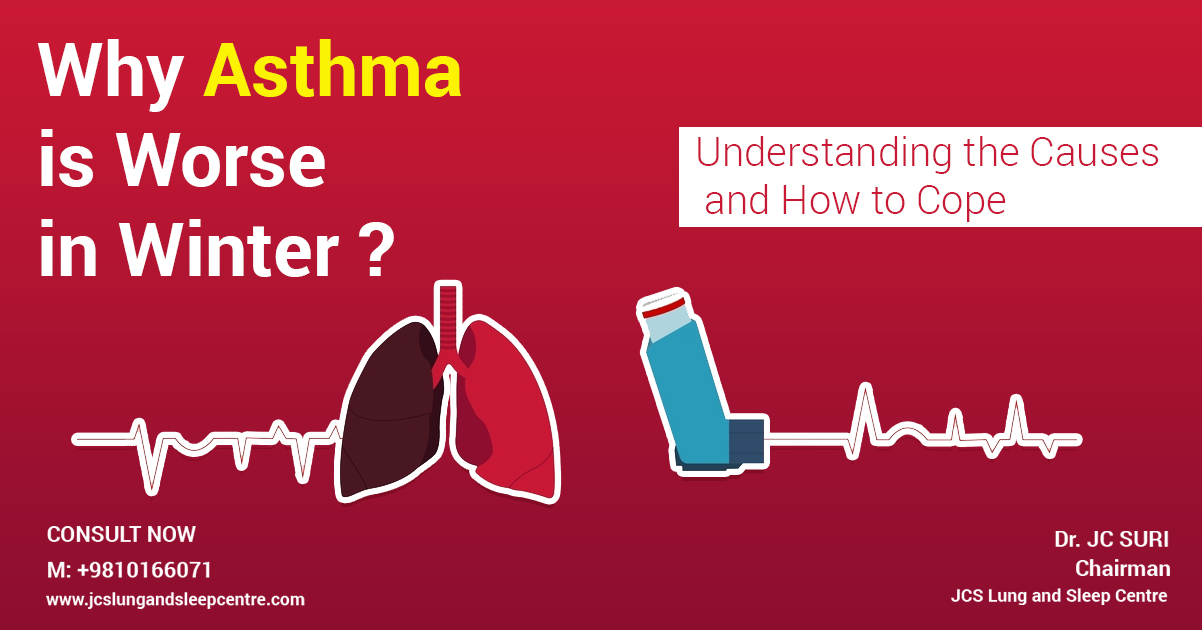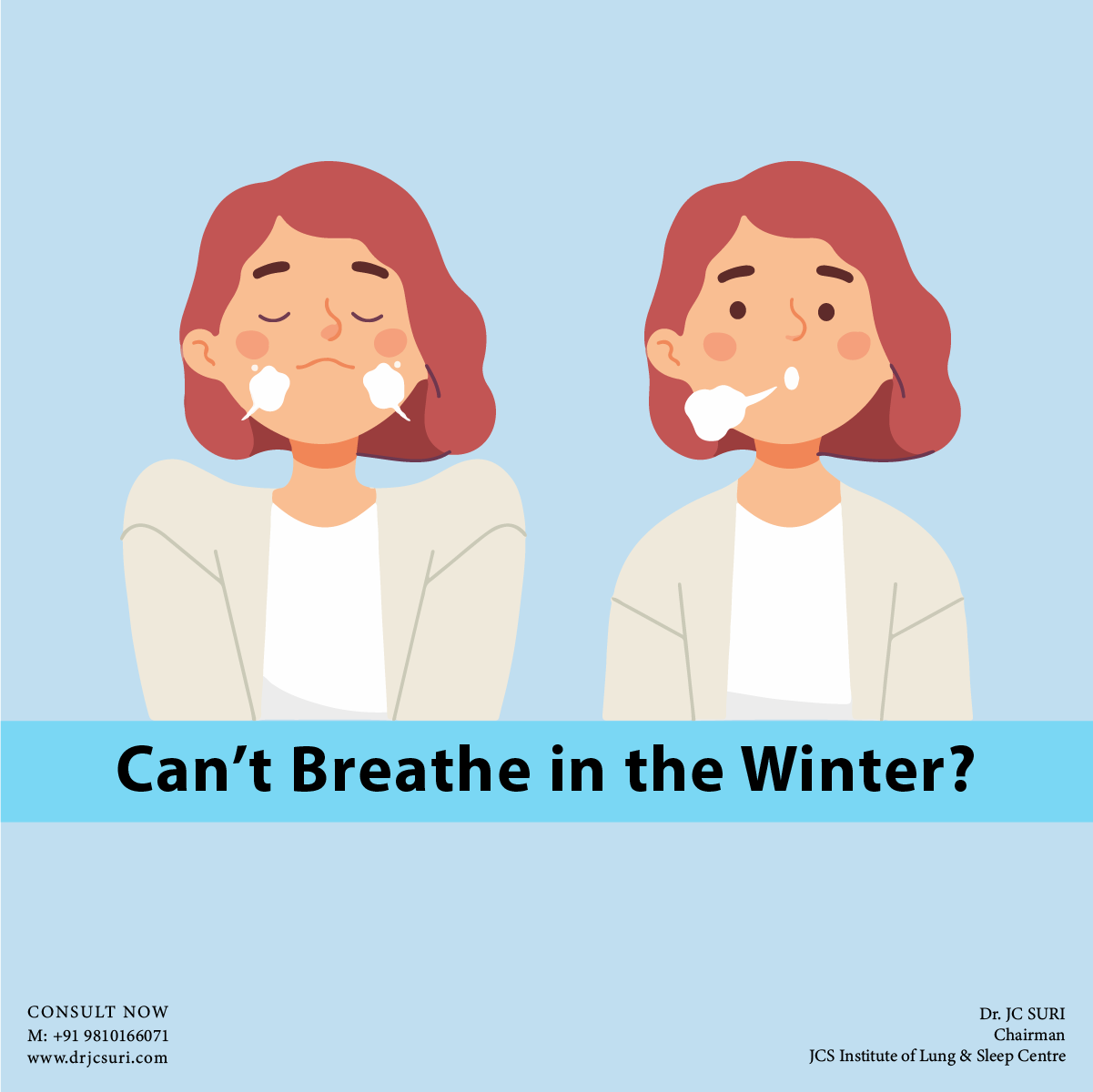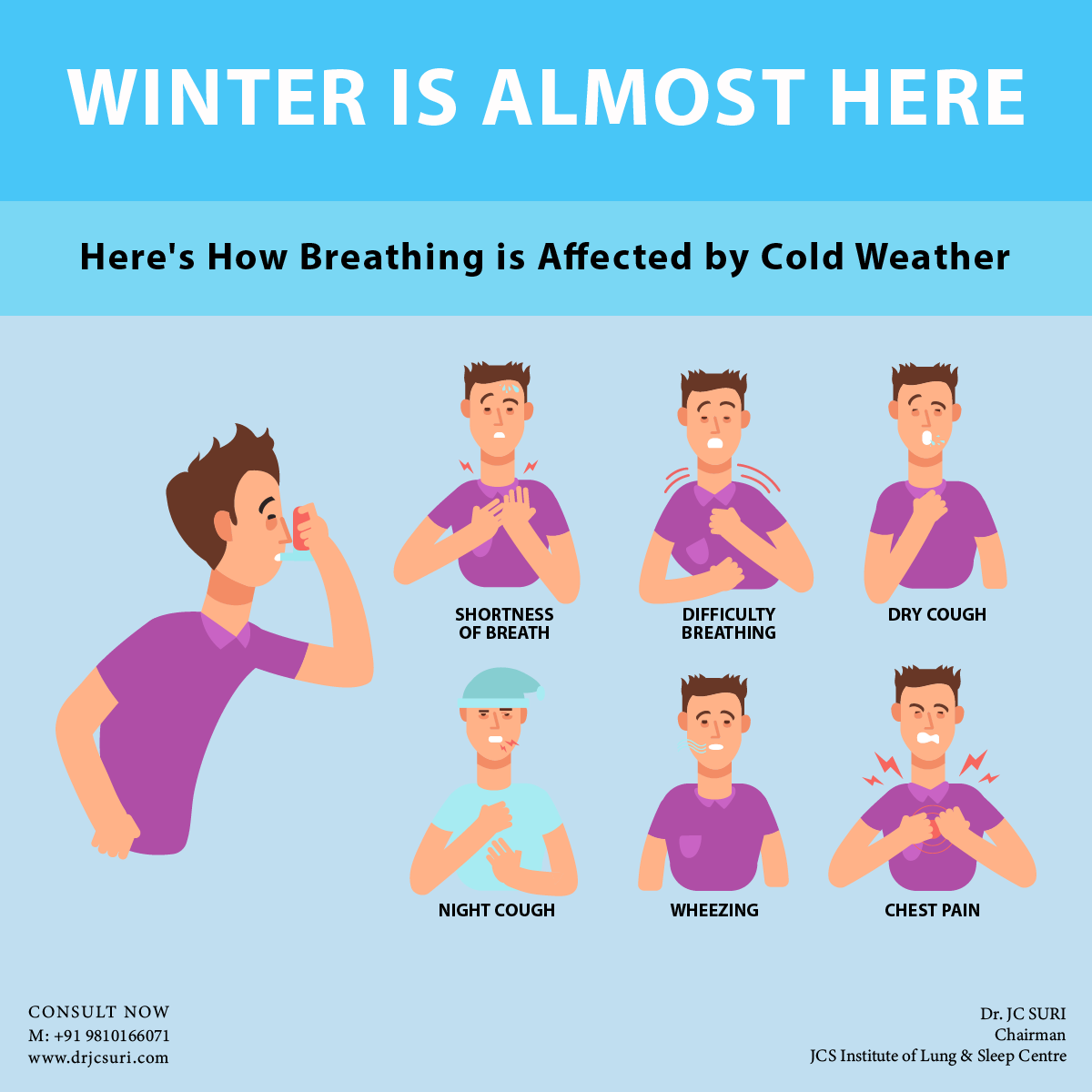Why Asthma is Worse in Winter? Understanding the Causes and How to Cope
Winter and Asthma
Asthma is a chronic respiratory condition characterized by inflammation and narrowing of the airways, which can make breathing difficult. Many people with asthma experience more symptoms during the winter months. There are several reasons why this may be the case.
One of the main reasons is the increased exposure to indoor allergens such as dust mites and mold. These allergens can thrive in warm, humid environments and are often present in homes during the winter months when the windows are closed and the heating is on. Additionally, cold air can also irritate the airways and trigger asthma symptoms.
Another reason for the worsening of asthma in winter is the increased risk of respiratory infections. The cold weather may lead to more time spent indoors, where people are in closer contact with each other and can more easily spread germs. This can increase the risk of getting a cold or the flu, which can then lead to asthma exacerbations.
Dr. JC Suri is one of the Best Pulmonologists in Delhi and can help you in managing your asthma. He can work with you to develop an asthma action plan and adjust your treatment plan as needed to help you manage your symptoms during the winter months.
It is important to take steps to reduce your exposure to indoor allergens and to take precautions to avoid respiratory infections. This may include cleaning your home regularly to reduce dust and mold, using air filters, and keeping your home well-ventilated.
If you are experiencing worsening of your asthma symptoms during the winter months, consult with Dr. JC Suri, to get the possible treatment. He can help you to understand the factors that may be contributing to your symptoms and work with you to develop a plan to manage them.
Weather changes, particularly changes in temperature and humidity, can have a significant impact. Cold, dry air can cause the airways to constrict, making it more difficult to breathe. This can also make the airways more sensitive to irritants such as dust and pollution, which can trigger asthma symptoms.
On the other hand, hot and humid weather can also aggravate its symptoms. The increased humidity can make it harder for the airways to clear mucus, which can lead to increased coughing and wheezing. Additionally, high temperatures can cause increased air pollution, which can also trigger symptoms.
Changes in barometric pressure, such as those that occur during storms or cold fronts, can also affect. These changes can cause the airways to constrict, making it more difficult to breathe and triggering symptoms.
Allergic reactions to pollen and other allergens are also more common during certain seasons
It is important for people with asthma to be aware of how weather changes may affect their symptoms and to take steps to manage them. This may include adjusting medication, avoiding outdoor activities during times when pollen or pollution levels are high, and staying indoors when the weather is cold and dry.
Consulting with a pulmonologist such as Dr. JC Suri can help in better understanding how weather changes may affect your asthma and developing a plan to manage your symptoms.
Don’t Let Winter Weather Trigger Asthma: How to Stay Ahead of Symptoms
Staying ahead of asthma symptoms during the winter can be challenging, but with the right knowledge and strategies, it is possible to manage them effectively.
Here are some tips to help you stay ahead during the winter:
- Develop an asthma action plan: Work with your healthcare provider to develop an action plan that includes information on how to recognize symptoms and what to do when they occur.
- Monitor your symptoms: Keep track of your symptoms, including how often they occur and how severe they are. This information can help you and your healthcare provider identify triggers and make adjustments to your treatment plan as needed.
- Control indoor allergens: Dust mites and mold can thrive in warm, humid environments can trigger symptoms. Keep your home clean and free of dust, use air filters, and keep the humidity level low.
- Avoid cold air: Cold air can cause the airways to constrict, making it more difficult to breathe. When going outside, cover your mouth and nose with a scarf or mask to warm the air before it enters your lungs.
- Exercise indoors: Regular exercise is important for managing symptoms, but it can be difficult to do when it’s cold outside. Try to exercise indoors in a warm, humid environment.
- Get a flu shot: Respiratory infections, such as the flu, can worsen asthma symptoms. Get a flu shot every year to protect yourself from getting sick.
- Keep your medication with you: Always carry your asthma medication with you, especially during the winter when symptoms can be more severe.
- Consult with Dr. JC Suri: If you are experiencing worsening of your asthma symptoms during the winter months, consult with Dr. JC Suri, the best pulmonologist in Delhi. He can help you to understand the factors that may be contributing to your symptoms and work with you to develop a plan to manage them.
By following these tips, you can stay ahead of asthma symptoms during the winter and enjoy a healthy and active life.




